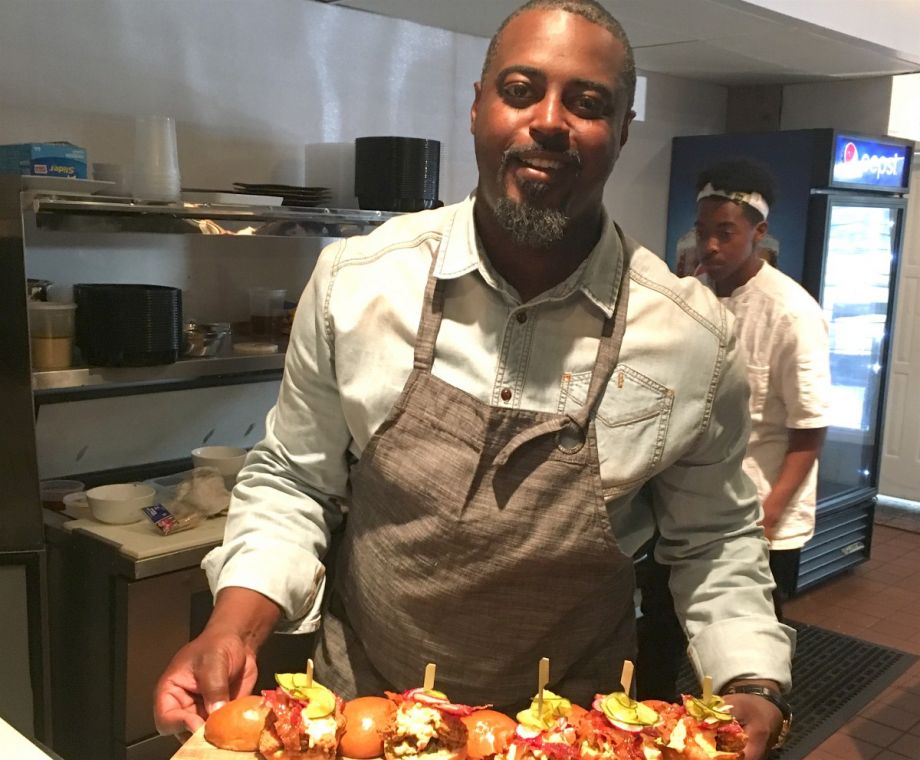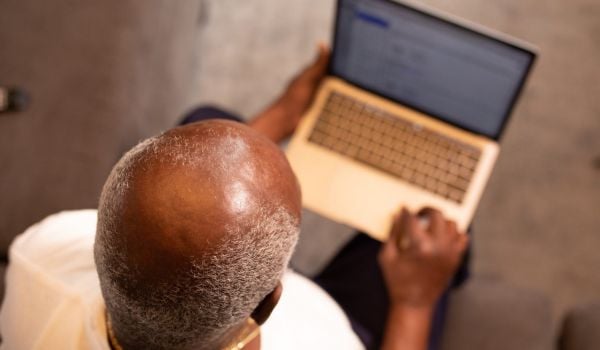The pushback began almost immediately when Detroit’s inaugural Black Restaurant Week was announced in August.
Detroit Free Press restaurant critic Mark Kurlyandchik wrote a story about the business promotion, which was designed to showcase black-owned eateries across town during six days of lunch and dinner specials. He began receiving hateful emails. Angry writers said the event was divisive.
And it wasn’t just the Detroit paper’s readers who were upset. In a city that is more than 80 percent black, some business owners resisted getting involved, worried that participating would alienate their non-black clientele.
“It was really intense and it weighed on Lauren and I,” says Kwaku Osei-Bonsu, who along with Lauren Bates created the event. They are also the founders of the website BlackMetroEats.com. “It was like wow, we are just trying to do something for people.”
The outcry had the opposite effect though. “In this case, all news was good news,” Osei-Bonsu says.
It became evident that Osei-Bonsu and Bates were onto something lucrative when they began planning the event a little over two months prior.
They managed to attract a diverse array of cuisines with 12 black-owned eateries — from Jamaican, to vegan soul food and West African — and several potential sponsors for 2018. They kicked off the week in August to a packed house at the upscale House of Pure Vin, where chef Crystal Smith, a native Detroiter and recent winner of the Food Network’s “Chopped” competition, prepared food for guests.
“That week, we had more white and customers of other ethnicities than anything else,” says Maxcel Hardy, chef-owner of River Bistro in Detroit’s Rosedale Park neighborhood and a participating restaurateur.
While it’s still too early to say just how much of an economic impact the event made, Osei-Bonsu and others are hopeful that the success of the inaugural year will result in a real difference in the restaurants’ bottom lines. It’s happened in other black-majority communities across the U.S.
Cynthia Daniels founded Black Restaurant Week in Memphis in 2016. In its first year, the Memphis event generated $85,000 in sales for participating restaurants and created 38 new jobs, according to the Commercial Appeal. This spring, the second event brought in $175,000 and created more than 50 new jobs. Daniels’ effort has since spread to nine other cities.
Memphis business owners are seeing more customers outside of the special week too. Daniels says part of the success thus far is due to a sense of pride among African-Americans in supporting other black-owned businesses.
“African-Americans are a lot more intentional about where they’re spending their money,” she says. “Owners are finally experiencing being at maximum capacity, people having to make reservations, seeing their businesses with wall-to-wall customers.”
In New York City’s Harlem, a longtime center of black culture and commerce, the popular Black Chef Series at Blujeen restaurant attracted national headlines during its third run this summer.
Hardy, who returned to the Motor City at the start of 2017 after long stints in Miami and New York, participated in the inaugural Harlem series in 2015.
“When we started Black Chef Series, we were just trying to highlight black chefs, but we also realized the revenue and exposure opportunity that went with it,” says Hardy.
Blujeen was strategic in when it scheduled its ticketed event. Instead of timing it during normal business hours, the series has taken place when the eatery is normally closed, resulting in as much as a 10 percent increase in sales and a clear view of the amount of interest it garnered, Hardy says.
As for the Detroit event, it couldn’t have come at a better time for Hardy’s River Bistro, which had just opened a few weeks prior.
“We saw more new faces, it was a chance for new exposure,” says Hardy, who plans to open at least two more restaurants in his hometown.
That there was pushback at all highlights tensions in the city over who is benefitting from Detroit’s so-called comeback. While parts of the city’s greater downtown has lots of new housing, trendy restaurants and a taxpayer-supported hockey arena and entertainment district, far less attention is paid to smaller, independently owned establishments in other areas.
Often, for a restaurant to garner mentions on a food blog listicle, an owner must be able to invest in publicity. It’s a similar problem that Daniels observed when she started reaching out to restaurateurs in Memphis.
“You have to know that black-owned restaurants are family-owned, so they don’t have that luxury of those marketing dollars to spend,” she says.
To combat that discrepancy, Daniels began helping owners beef up their social media presence. She noticed many of the longtime establishments with owners in their 50s and 60s were relying too heavily on old-school word-of-mouth for their customer base.
“Once they saw the influx in traffic, they started to appreciate it more,” Daniels says.
Osei-Bonsu has a background in technology and is already envisioning how he can combine this latest passion project in Detroit with his formal training. He has a background as a software engineer and recently accepted a position teaching youth to code.
He connected with BlackMetroEats.com co-founder Bates when the two organized a fundraiser held at Ten Nail Salon, a swanky black-owned nail spa in downtown. Through their website, the two are planning more targeted events, such as “Put Ya Mama Where Ya Mouth Is,” a competition for moms who will enter family recipes. The winner will be named “Cast Iron Queen.”
They’ve also been in touch with an app developer who is interested in using technology to track who is checking into future Black Restaurant Week events.
“If you have a connection to the people behind the food, it humanizes that business,” Osei-Bonsu says. “It maybe has a different meaning to you.”

Serena Maria Daniels is an award-winning Chicana journalist and founder and editor of Tostada Magazine, a Detroit-based digital food & culture journalism platform that centers stories and perspectives of immigrants and people of color.
Follow Serena .(JavaScript must be enabled to view this email address)
















